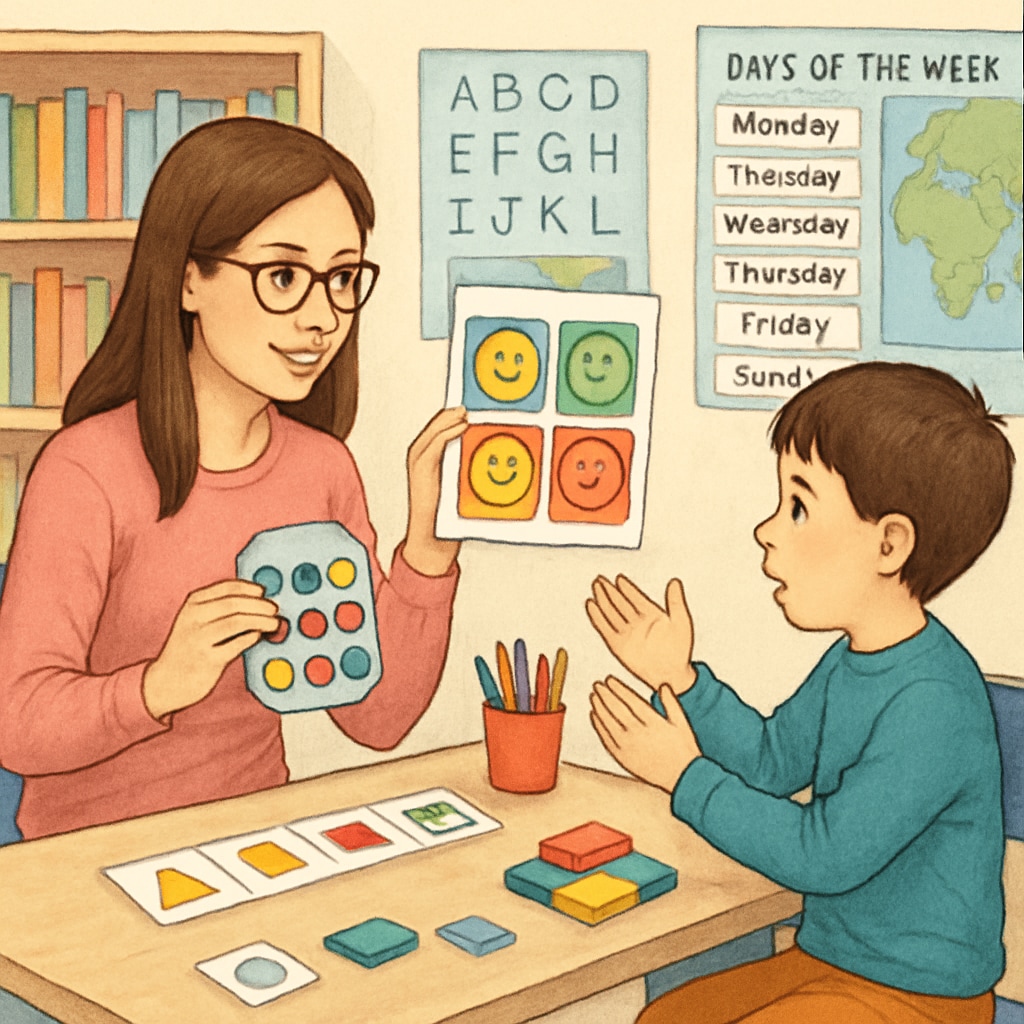Working in special education as a teacher assistant for children with autism is a rewarding yet challenging journey. This role requires patience, empathy, and the ability to adapt to diverse needs. In this article, we’ll explore how to prepare for school meetings and the essential skills and mindset needed to succeed in special education environments.
Understanding Autism Spectrum Disorder (ASD)
Before diving into the specifics of being a teacher assistant, it’s important to understand the basics of Autism Spectrum Disorder (ASD). Autism is a developmental condition that affects communication, social interaction, and behavior. Children on the spectrum often experience sensory sensitivities, repetitive behaviors, and unique learning challenges. Being informed about autism is the first step to becoming an effective advocate and educator.
For more detailed information, you can visit Autism on Wikipedia or explore Autism on Britannica.

Preparing for School Meetings and Interviews
If you’re applying for a position at a school for children with autism, the interview or meeting is an opportunity to demonstrate your understanding of special education and your readiness for the role. Here are some key steps to prepare:
- Research the school’s mission, values, and approach to special education.
- Familiarize yourself with common teaching strategies for children with autism, such as Applied Behavior Analysis (ABA) or visual supports.
- Prepare real-life examples of how you’ve handled challenging situations, whether in education or other caregiving roles.
- Show empathy and adaptability by discussing your ability to connect with children and modify plans based on their needs.
During the meeting, ask thoughtful questions about the classroom environment, student-teacher ratios, and available resources. This displays genuine interest and commitment.
Key Skills for Success in Special Education
As a teacher assistant, your role is to support both the teacher and the students. To excel in this field, certain skills are indispensable:
- Patience: Children with autism may require extra time and understanding, especially during moments of sensory overload or emotional distress.
- Communication: Mastering both verbal and non-verbal communication is crucial for connecting with students who may struggle with traditional conversation.
- Problem-solving: Be prepared to think on your feet and adapt strategies to address unexpected challenges.
- Empathy: Understanding the unique experience of each child helps foster trust and a supportive environment.
- Teamwork: Collaborating with teachers, therapists, and families ensures comprehensive care for the students.

Mindset and Emotional Resilience
While technical skills are important, your mindset plays a significant role in your success. Working in special education can be emotionally demanding, but it’s also incredibly fulfilling. To maintain resilience:
- Celebrate small victories, whether it’s a child learning a new skill or gaining confidence.
- Practice self-care to avoid burnout. Engage in hobbies, exercise, and mindfulness activities outside of work.
- Seek support from colleagues, mentors, or professional networks when facing challenges.
- Remember the purpose behind your work: making a positive impact on a child’s life.
As a teacher assistant, you are not just an educator; you are a bridge between the child and their potential, fostering growth and independence.
In conclusion, becoming a teacher assistant for children with autism in special education requires preparation, empathy, and resilience. By understanding autism, preparing for school meetings, and honing essential skills, you can build a meaningful career making a difference in the lives of children and their families.
Readability guidance: The article uses clear and concise language suitable for readers with intermediate English proficiency. Short paragraphs and bullet points enhance accessibility and ensure key points stand out.


